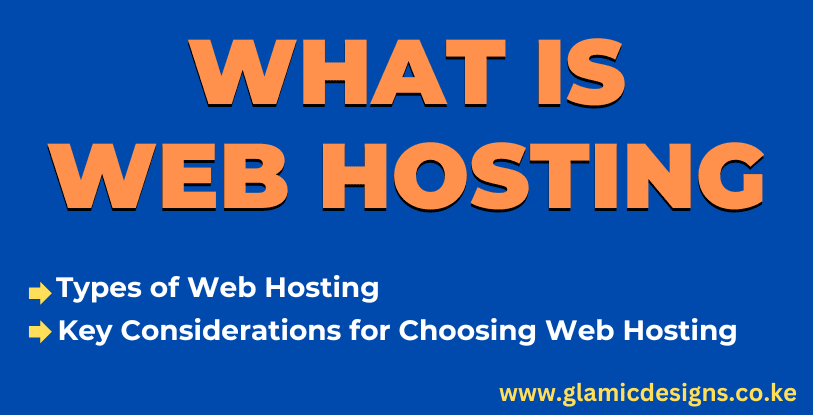
Web hosting is a service that allows individuals and organizations to make their websites accessible on the internet. When you create a website, the files and data that make up your site need to be stored on a server that is connected to the internet. This is where web hosting comes into play. Here’s how it works and what you need to know:
Types of Web Hosting:
- Shared Hosting: Your website shares server resources (such as storage, bandwidth, and processing power) with other websites on the same server. This is a cost-effective option for smaller websites.
- VPS (Virtual Private Server) Hosting: A VPS provides you with a virtualized server environment where you have more control and dedicated resources. It offers a balance between shared and dedicated hosting.
- Dedicated Hosting: With dedicated hosting, you have an entire physical server dedicated to your website. This provides maximum control and resources but is usually more expensive.
- Cloud Hosting: Cloud hosting uses a network of interconnected virtual servers to host your website. It offers scalability and flexibility, allowing you to easily adjust resources as needed.
- Managed Hosting: A provider manages the technical aspects of hosting, including server setup, maintenance, updates, and security.
- WordPress Hosting: Optimized hosting specifically designed for WordPress websites, often including features like one-click WordPress installation and automatic updates.
Key Considerations for Choosing Web Hosting:
- Performance: Look for hosting with good uptime (the time your site is accessible) and fast loading speeds. This is crucial for user experience and SEO.
- Scalability: Consider whether the hosting plan can accommodate your website’s growth in terms of traffic and content.
- Security: A reliable hosting provider should offer security features like SSL certificates, regular backups, and protection against malware and hacking attempts.
- Customer Support: Access to responsive customer support is important in case you encounter technical issues.
- Control Panel: Most hosting providers offer a control panel (such as cPanel) to manage your website, email accounts, and other settings.
- Price: Compare pricing and features to find a plan that fits your budget and requirements.
- Technical Requirements: Make sure the hosting environment supports the technologies and software your website needs, such as programming languages, databases, and content management systems.
- Location: Hosting servers’ physical location can affect website loading speeds for visitors in different regions.
- Domain and Email: Check if the hosting package includes domain registration or if you’ll need to purchase that separately. Also, consider the email services provided.
When choosing a web hosting provider and plan, it’s important to align your choice with your website’s needs, growth projections, and technical requirements
if you are ready to move ahead and chart a whole new growth path for business through an impressive online representation, contact us today at 0722 228367, for a no-obligation consultation, or click here for a Free Quote.
